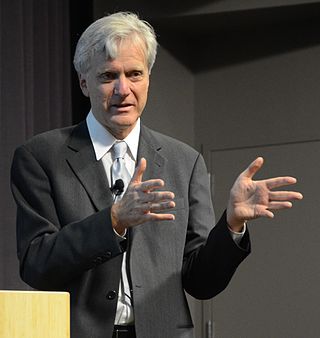
Andreas Maria Maximilian Freiherr von Mauchenheim genannt Bechtolsheim is a German electrical engineer, entrepreneur and investor. He co-founded Sun Microsystems in 1982 and was its chief hardware designer. As of July 2024, Forbes estimated his net worth at $22.3 billion.

Vijay Satyanand Pande is a Trinidadian–American scientist and venture capitalist. Pande is best known for orchestrating the distributed computing protein-folding research project known as Folding@home. His research is focused on distributed computing and computer-modelling of microbiology, and on improving computer simulations regarding drug-binding, protein design, and synthetic biomimetic polymers. He is currently a general partner at venture capital firm Andreessen Horowitz.
A business incubator is an organization that helps startup companies and individual entrepreneurs to develop their businesses by providing a fullscale range of services, starting with management training and office space, and ending with venture capital financing. The National Business Incubation Association (NBIA) defines business incubators as a catalyst tool for either regional or national economic development. NBIA categorizes its members' incubators by the following five incubator types: academic institutions; non-profit development corporations; for-profit property development ventures; venture capital firms, and a combination of the above.
John Arrillaga was an American billionaire real estate developer and philanthropist who was one of the largest landowners in Silicon Valley. He was also a college basketball player when he attended Stanford University.
David Ross Cheriton is a Canadian computer scientist, businessman, philanthropist, and venture capitalist. He is a computer science professor at Stanford University, where he founded and leads the Distributed Systems Group.
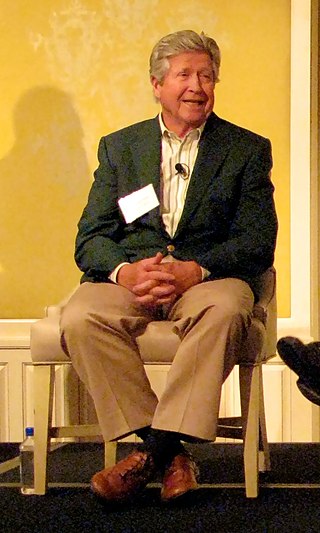
Donald Thomas Valentine was an American venture capitalist who concentrated mainly on technology companies in the United States. As the founder of Sequoia Capital, he has been referred to as the "grandfather of Silicon Valley venture capital". The Computer History Museum credited him as playing "a key role in the formation of a number of industries such as semiconductors, personal computers, personal computer software, digital entertainment and networking."
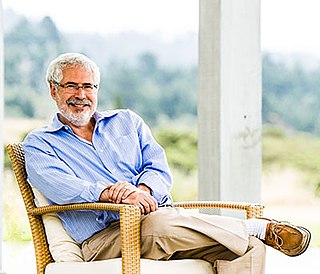
Steve Blank is an American entrepreneur, educator, author and speaker. He created the customer development method that launched the lean startup movement. His work has influenced modern entrepreneurship through the creation of tools and processes for new ventures which differ from those used in large companies.
Karen Richardson is an American executive in the software industry.

Diane B. Greene is an American technology entrepreneur and executive. Greene started her career as a naval architect before transitioning to the tech industry, where she was a founder and CEO of VMware from 1998 until 2008. She was a board director of Google and CEO of Google Cloud from 2015 until 2019. She was also the co-founder and CEO of two startups, Bebop and VXtreme, which were acquired by Google and Microsoft, for $380 million and $75 million.

Jon Fisher is a Silicon Valley entrepreneur. As of 2021, Fisher is the CEO and a co-founder of software company ViciNFT. As a co-founding CEO, Fisher built multiple companies including Bharosa—which produced the Oracle Adaptive Access Manager and sold to Oracle Corporation for a reported $50 million in 2007, NetClerk—now part of Roper Technologies, AutoReach—now part of AutoNation, and CrowdOptic.
The United States Geospatial Intelligence Foundation (USGIF) is a 501(c)(3) non-profit educational foundation in Virginia dedicated to promoting the geospatial intelligence tradecraft and developing a stronger GEOINT Community with government, industry, academia, professional organizations, and individuals who develop and apply geospatial intelligence to address national security challenges. USGIF achieves its mission through various programs and events and by building the community, advancing the tradecraft, and accelerating innovation. USGIF provides a number of programs and events such as its GEOINT Symposium, an academic accreditation program for college and university geospatial programs, and other live, virtual, and hybrid programs to provide the community with the opportunity to collaborate with senior-level officials across the multiple communities and support the future of the tradecraft.
Singularity Education Group is an American company that offers executive educational programs, a business incubator, and business consultancy services. Although the company uses the word "university" in its branding, it is not an accredited university and has no academic programs or accreditation.
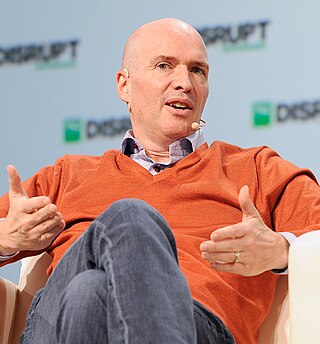
Benjamin Abraham Horowitz is an American businessman, investor, blogger, and author. He is a technology entrepreneur and co-founder of the venture capital firm Andreessen Horowitz along with Marc Andreessen. He previously co-founded and served as president and chief executive officer of the enterprise software company Opsware, which Hewlett-Packard acquired in 2007. Horowitz is the author of The Hard Thing About Hard Things: Building a Business When There Are No Easy Answers, a book about startups, and What You Do Is Who You Are: How to Create Your Business Culture.
The Cape Silicon Initiative or Silicon Cape is a regional ICT business networking NPO and community in the Western Cape, South Africa.
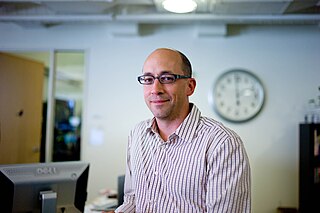
Richard William Costolo is an American businessman. He was the CEO of Twitter, Inc. from 2010 to 2015; he also served as the COO before becoming CEO.

Scott Weiss is an American venture capitalist at the Silicon Valley firm Andreessen Horowitz, joining in April 2011 as the firm's fourth general partner. A native of Sarasota, Florida, he founded and was CEO of IronPort Systems, which Cisco acquired in 2007 for $830 million.
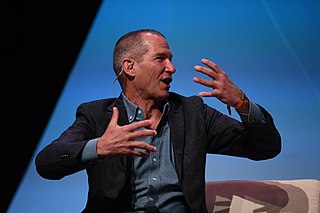
Jeffrey D. Jordan is an American venture capitalist at the Silicon Valley firm Andreessen Horowitz and the former President and CEO of OpenTable.
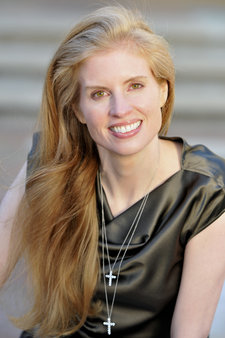
Laura Arrillaga-Andreessen is an American educator and author.
The Financial Times and McKinsey Bracken Bower Prize is an annual award given to the best business book proposal of the year by a young writer, as determined by the Financial Times and McKinsey & Company. It aims to find the "best proposal for a book about the challenges and opportunities of growth by an author aged under 35".
The Stanford University endowment includes real estate and other investments valued at $36.5 billion as of August 31, 2023, and is one of the four largest academic endowments in the United States. The endowment consists of $29.9 billion in a merged pool of assets and $6.6 billion of real estate near the main campus. Along with Stanford's pension assets, working capital, and non-cash gifts, the endowment is managed by Stanford Management Company (SMC), a Stanford-owned investment management company.











